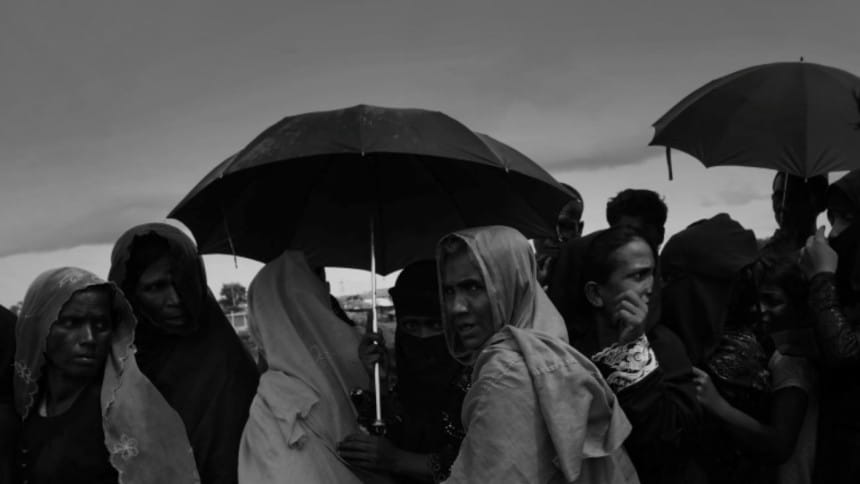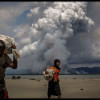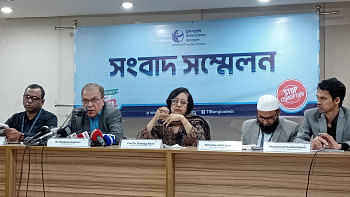Rohingya - A people not wanted anywhere

According to media reports, the Indian Border Security Force (BSF) took back 31 stranded Rohingyas from the no-man's land in the India-Bangladesh border near Brahmanbaria after a five-day impasse, which ensued after a BSF attempt to push them into Bangladesh was met with stiff resistance from the Border Guard Bangladesh (BGB). Since the beginning of the year, no less than 1,300 Rohingya Muslims crossed the border into Bangladesh from India, where many of them had been living for years. (The Daily Star, January 20, 2019) Before this, on January 3, 2019, India deported a family of five Rohingyas, and last year, seven Rohingya Muslims were deported to Myanmar by the Indian government despite appeals from the United Nations not to do so. In recent times, Saudi Arabia also deported undocumented Rohingya migrants who had gone there with illegally obtained travel documents.
The Rohingyas are a Muslim ethnic-minority group based in Myanmar's Rakhine State. According to many historians, they are descendants of Arab traders and other groups who, in the 15th century, migrated to Rakhine, previously called the Kingdom of Arakan. Despite their considerable numbers and established local roots, successive governments in Myanmar have rejected the Rohingyas' historical claims and denied them recognition as one of the country's 135 official ethnic groups, claiming they are illegal immigrants. They are denied basic human rights and treated like animals with no access to education, medicine, or other government services. They are not even allowed to move freely or leave their settlements in Rakhine without government approval. Many are internally displaced in their own birthplace, living like refugees.
Things got worse when militants attacked security forces in northern Rakhine State on August 25, 2017. In response, the Myanmar army launched a ruthless campaign against the Rohingyas fashioned in the style of the Japanese war tactic—"burn all, kill all, destroy all". The army and its collaborators slaughtered thousands of civilians, raped girls and women while family members were tortured and killed, and burned their houses, forcing hundreds of thousands to flee their homes. Since then, the Rohingyas have been trying to escape by sea to Malaysia, Indonesia and Thailand but unfortunately, none of these countries allowed them to enter their territory, claiming they are financially unable to accept or host them and so their boats were turned away.
In a world where so many borders are closed, Bangladesh, itself a poor country and one of the world's most densely populated, welcomed the Rohingyas by opening its border. Since August 2017, over 750,000 Rohingyas have crossed into Bangladesh. For Bangladesh, the Rohingya refugee influx is not a new phenomenon. Different media reports confirm that between 1974 and 2016, more than 260,000 Rohingyas fled Rakhine thanks to human rights abuses committed by the Myanmar military, including the confiscation of land, forced labour, rape, and torture. Bangladesh has continued to take in another 11,432 Rohingyas since the beginning of 2018 through the end of June 2018. Currently, more than a million Rohingya refugees are living in mostly makeshift camps in Cox's Bazar.
It should be noted that the degree of violence endured by the Rohingyas since August 25, 2017 was new, but their experience of oppression was not. Since the 1970s, the Rohingyas have faced state-sponsored persecution and have long endured severe discrimination in the Buddhist-majority Myanmar, and were targets of communal violence. In 1982, the Myanmar government effectively institutionalised discrimination against the Rohingyas by introducing a citizenship law. Under the law, Rohingyas were not recognised as one of the country's 135 ethnic groups. Restrictions was imposed on their rights to study, marriage, employment, education, religious choice, and freedom of movement, leaving them vulnerable to abuse. For years, they have been living a miserable life, suffered considerable trauma as a result of the widespread campaign of murder, rape, and arson tantamount to crimes against humanity. As such, seeing no other options, they have been crowded on boats and ping-ponged between nations that don't want them.
Bangladesh and its people have shown the best of humanity and saved many thousands of lives by providing shelter to the Rohingya community. The country has allocated 5,000 acres of land for temporary shelters, provided food, deployed mobile medical teams, and carried out large-scale immunisation campaigns. While there is now enough food and shelter to keep these Rohingyas alive, and while there are more than enough water points and sanitation facilities to accommodate them, one must not forget the limitation of this poor country, already struggling to cope with extreme poverty, high population density, high unemployment rate and the effects of regular natural disasters and climate change. So far, Bangladesh has managed to reconcile the two conflicting demands, with the assistance of the United Nations and other humanitarian agencies, supplying humanitarian aid to the Rohingyas while ensuring the stability and security within Bangladesh. But if the repatriation process doesn't start soon, not only will it have a negative impact on our economy and environment; the regional and global security and stability will be affected as well.
Today, the Rohingyas are often described as "the world's most persecuted minority." They deserve a home where they can live peacefully without the fear of persecution. And that home must be in their original motherland, Arakan/Rakhine State. The repatriation deal signed in November 2017 between Bangladesh and Myanmar has stalled largely because, among other reasons, the Rohingyas fear returning to Rakhine without their safety and rights guaranteed. Rohingya Muslims now face an uncertain future. Therefore, Bangladesh should continue to make its case on the world stage. It cannot let the world think that the issue is only ours to solve. As the World Bank Group President Jim Yong Kim said. "The refugee situation around the world is everybody's problem. It's not just a problem for host countries, or just a problem for the refugees—this is everybody's problem."
There needs to be a paradigm shift in how to deal with the crisis. Rather than just pledging money and humanitarian aid, it is time for the international community to demonstrate the political will and moral authority to step up and offer a bold package of support that meets the needs of Rohingya refugees and addresses the root causes of the crisis, including recognition of Rohingya citizenship in Myanmar and of the basic rights of the Rohingya people. The failure to do so will worsen what is already one of the great tragedies of our time.
Abu Afsarul Haider studied economics and business administration at the Illinois State University, USA, and is currently involved in international trade in Dhaka. Email: [email protected]










Comments